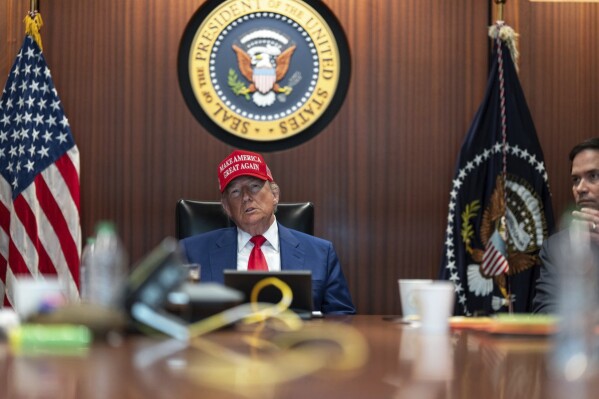The Middle East has been irrevocably plunged into its most dangerous crisis in decades, as the United States launched a devastating series of airstrikes against Iranian nuclear facilities in the early hours of Sunday, including the heavily fortified Fordo and Natanz enrichment plants. Tehran has responded with a furious vow of “everlasting consequences,” dramatically raising the specter of a full-scale regional war that could reshape global geopolitics.
The meticulously coordinated strikes, confirmed by senior U.S. defense officials speaking on background, involved a combination of stealth bombers and cruise missiles, targeting what the Pentagon described as “key elements of Iran’s illicit nuclear weapons program and its infrastructure for ballistic missile development.” Explosions rocked multiple sites, with the most significant damage reportedly inflicted on Fordo, a facility deeply entrenched within a mountain, which sources suggest required the use of America’s formidable GBU-57 Massive Ordnance Penetrator (MOP) bunker buster bombs.

Iranian state media, initially downplaying the extent of the damage, later erupted in condemnation. The Islamic Revolutionary Guard Corps (IRGC) swiftly confirmed the attacks, though provided few details on casualties or specific damage. Foreign Minister Hossein Amir-Abdollahian, speaking on state television, declared the strikes an “act of unprecedented aggression” and warned, “The United States has made a grave miscalculation. The consequences will be everlasting, and they will be borne by all who participated in this criminal act.”
The U.S. operation follows weeks of escalating tensions, including direct missile exchanges between Iran and Israel and President Donald Trump’s unequivocal demand for Iran’s “UNCONDITIONAL SURRENDER!” and an end to its nuclear ambitions. Trump, who had famously stated he might “do it, I may not do it” regarding an attack, appears to have ultimately given the green light after what sources suggest was a final refusal by Tehran to engage in the demanded negotiations.
In a brief statement from the Oval Office, President Trump declared, “We have acted decisively to protect American interests, our allies, and to prevent the world’s leading state sponsor of terror from acquiring the world’s most dangerous weapon. The ball is now in Iran’s court.” He reiterated his commitment to a “nuclear-free Iran” and urged Tehran to “choose peace, not proliferation.”
The global reaction has been one of shock and profound concern. European leaders, including British Prime Minister Sir Keir Starmer and French President Emmanuel Macron, have called for an immediate cessation of hostilities and expressed deep apprehension about the spiraling crisis. Russia and China condemned the U.S. strikes as a “gross violation of international law,” with Beijing warning of “catastrophic implications.”
Israel, which has long advocated for military action against Iran’s nuclear program, has remained largely silent on the U.S. strikes. However, Israeli Prime Minister Benjamin Netanyahu’s office released a terse statement expressing “full support for the decisive actions taken by our allies to ensure regional security.”
The immediate aftermath of the strikes is already volatile. Reports from across the region indicate heightened military alerts among U.S. and allied forces, anticipating retaliatory actions from Iran and its proxies. Oil prices have surged to unprecedented levels, and global financial markets are bracing for extreme instability.
As the sun rises over a Middle East forever altered, the U.S. strikes on Iran’s nuclear facilities mark a terrifying new chapter in a conflict that has simmered for decades. The world now waits with bated breath to see if Tehran’s promise of “everlasting consequences” will usher in an era of devastating warfare, or if a path to de-escalation can still be forged from the ashes of this audacious military intervention.